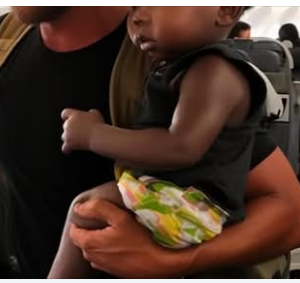When Alice first asked me to walk her down the aisle, it felt like a knife twisting in my heart. I had always envisioned this moment: the proud father guiding his daughter to the man who would become her husband. But the truth we uncovered when Alice turned eighteen shattered that vision.
Alice wasn’t my biological child. The revelation came as a thunderclap on a clear day. After a routine blood test for a school activity, we learned that the man who had raised Alice for eighteen years, who had loved her, protected her, and considered her his own, was not her biological father. Clara, my wife of two decades, had been unfaithful with James, a friend I’d trusted.
The shock was less about Alice and more about the betrayal of Clara. The betrayal was a deep wound, and James was the knife that had cut it open. Despite this, my feelings for Alice remained unchanged. She was my daughter in every meaningful way—except the genetic one. I had no intention of abandoning her because of a biological fact.
But Alice’s reaction was different. Once the truth was out, our relationship shifted. She felt betrayed, not just by her mother but by me as well. The realization that the man she had always called Dad wasn’t her biological father seemed to create a rift we couldn’t mend. Despite my attempts to bridge that gap, her feelings remained hurt and distant.
Years passed. I watched Alice from afar as she navigated adulthood, always hoping for reconciliation. Then came the day she called me to ask if I would walk her down the aisle. My heart sank. I wanted to say yes, to mend what was broken, but I was also profoundly hurt by her request. It felt like an emotional minefield.
I refused.
I refused not out of spite or malice, but because I believed in honesty and integrity in the role I played in her life. Walking her down the aisle felt like a performance of normalcy that was not reflective of our reality. I couldn’t pretend that the betrayal didn’t affect me, that it didn’t change how I felt. It was not about Alice as much as it was about my struggle with the deceit that had fractured our family. I wanted her to understand that this was not a choice made out of spite, but from a place of painful honesty.
In my refusal, I wanted to communicate that relationships are more than appearances. They are about genuine feelings and truths. Walking her down the aisle would have been a concession to a fractured past and a false sense of resolution.
Alice didn’t understand, and perhaps she never will. Our relationship remains strained, a poignant reminder of the complexities of human connections. I hold on to the hope that one day she will see my refusal not as a denial of her but as an acknowledgment of a painful truth we both had to face.





